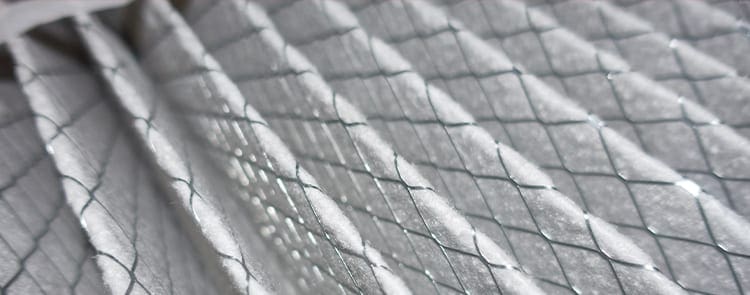Blogs
2 Ways An Air Filter Can Kill Your Air Conditioner and Furnace
9/6/2022

It’s ironic. Your air filter’s job is to prevent dust and other large particles from ruining your heating and cooling system. But two things can turn that safety net into your wallet’s worst nightmare by ruining what it was meant to protect.
How? Read on to find out.
1. Letting the air filter work overtime
If you’ve ever worked overtime, you’ve probably realized that your quality of work decreased significantly. The same can be said with your air filter. When you leave it in your return duct for too long and it gets caked in dirt, it’s no longer working efficiently. Not only that, it’s actually hurting your heating and cooling system and raising your energy bills.
According to ENERGY STAR: “A dirty filter will slow down air flow and make the system work harder to keep you warm or cool—wasting energy. A clean filter will also prevent dust and dirt from building up in the system — leading to expensive maintenance and/or early system failure.”
Check your air filter at least once a month (especially during the summer and winter months) and change it if it’s dirty. Standard fiberglass filters last between 1-3 months.
2. Being too much of a health nut
Some homeowners want cleaner air, so they buy an HVAC filter with a high “MERV rating.” This rating, which ranges from 1-20, represents how well the filter can catch smaller airborne particles (“1” means it can only catch large airborne particles, “20” means it can catch very small airborne particles.)
Here’s the problem: Some filters with a high MERV rating can drop air pressure in your duct system, which can increase energy bills and damage your HVAC system.
For example, let’s say you have a pleated filter that’s 1-inch thick and has a 13 MERV rating. Because the filter is thin and the MERV is high, it reduces airflow into the duct system. And like we said before: low airflow = wasting energy. To make matters worse, this type of filter will reduce airflow even further once it gets dirty, which it will do very quickly.
Why? Because high MERV filters are designed to catch large and small particles and therefore will get dirty quickly. And since the filter is thin, the filter will quickly fill up with particles and block airflow.
So, does that mean you should never get a high MERV filter? No way! You just need the right kind of high MERV filter. A thicker filter (4-5 inches) has more surface area and therefore allows more room for air to pass through.
Thick filters, due to their increased surface area, also have other benefits like:
- Higher dust-holding ability (meaning it can catch a lot without blocking airflow)
- Longer life (most pleated 4-in and 5-in-deep media filters will last between 6 months to a year between changes)
Do this: If you’re really interested in keeping your air clean, we’d suggest you get an air cleaner/purifier installed in your air ducts. Air cleaners, which have a thick media filter, can trap small particles, like pet dander and mold, without impeding air flow like a thin, pleated air filter would.
To learn more about how to keep your air clean and about the different types of air cleaners, ask one of our Home Comfort Heroes experts for help.
515-657-6634Request Appointment Online
Return- January 2024
- October 2023
- September 2023
- August 2023
- January 2023
- December 2022
- November 2022
- October 2022
- September 2022
- August 2022
- July 2022
- June 2022
- May 2022
- April 2022
- March 2022
- February 2022
- January 2022
- May 2021
- November 2020
- October 2020
- September 2020
- July 2020
- June 2020
- May 2020
- March 2020
- February 2020
- December 2019
- November 2019
- September 2019
- May 2019
- April 2019
- January 2019
- December 2018
- November 2018
- October 2018
- July 2018
- October 2016
- September 2016
- August 2016
- July 2016
- June 2016
- May 2016
- April 2016
- March 2016
- February 2016
- January 2016
- December 2015
- November 2015
- October 2015
- September 2015
- August 2015
- July 2015
- June 2015
- May 2015
- April 2015
- March 2015
- February 2015
- January 2015
- December 2014
- November 2014
- October 2014
- September 2014
- August 2014
- July 2014
- May 2014
- March 2014
- February 2014
- January 2014
- December 2013
- November 2013
- October 2013
- September 2013